Covid-19: Irish government approves further easing of restrictions
- Published
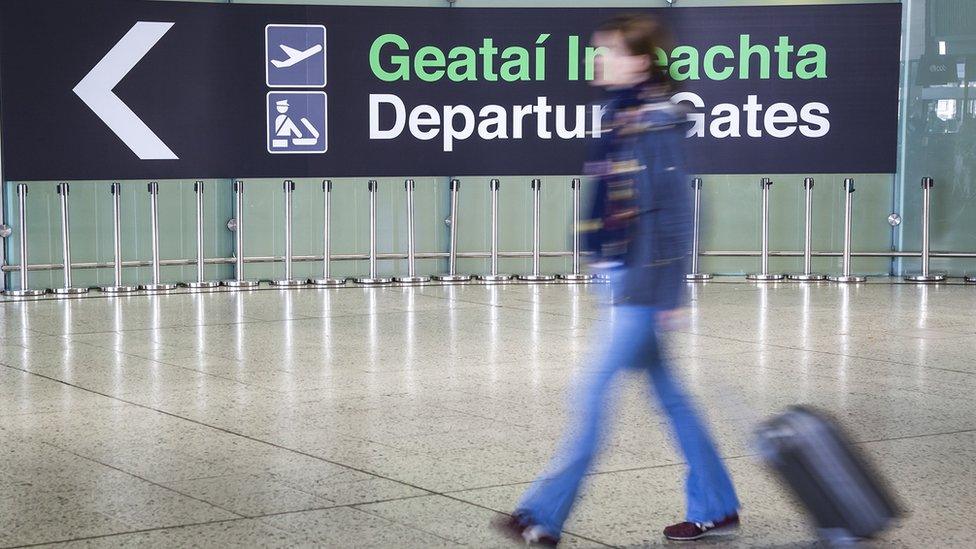
Taoiseach (Irish PM) Micheál Martin has announced several measures to allow for a further phased reopening of Ireland's society and economy over the summer.
It had already been agreed hotels in the Republic of Ireland can reopen from 2 June, followed by outdoor service at restaurants and pubs from 7 June.
Cinemas and gyms will also reopen on 7 June.
On Friday, Mr Martin announced that indoor pub and restaurant service could resume on 5 July.
International travel will resume on 19 July through the EU Digital Covid Certificate.
It will show if people have been vaccinated, tested negative, or recovered from Covid-19.
The cabinet has also approved plans to allow spectators to attend a number of sports events and music gigs in June and July, on a trial basis.
Restaurants, pubs, hairdressers and other close-contact services have been closed in the Republic of Ireland since Christmas Eve.
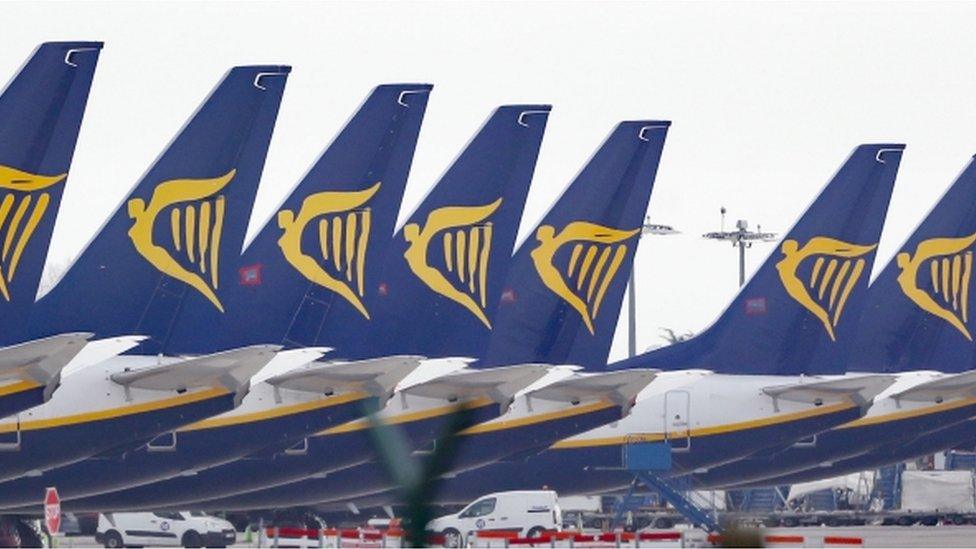
Non-essential travel will resume from 19 July
On 5 July bars and restaurants will be able to serve customers indoors again.
From 5 August there will be further increase in the number of people allowed to attend both indoor and outdoor events, including 100 guests at weddings.
'End within our grasp'
Speaking during a national address, Mr Martin said that the strategy to combat Covid-19 is working and that "the end of this is within our grasp".
"This is an important time for us all. After the trauma of the last 15 months, we are finally taking definite steps toward enjoying normal times with friends and loved ones again," he said.
"We are almost back to a point where we can enjoy the ordinary and extraordinary moments in our lives, the excitement and relief is palpable."
However, Mr Martin said that continued progress in the battle against coronavirus is not inevitable.
"Change brings risks," he said.
He said that the government is monitoring very closely the impact that the different variants will have on the spread of the virus - in particular the variant which was first detected in India.
The announcement of a further phased lockdown relaxation comes 24 hours after Irish Health Minister Stephen Donnelly indicated that the Republic will have difficulty meeting its vaccination targets.
It had been hoped that over 80% of adults would have their first vaccine, and 55% their second, by the end of June.
Mr Donnelly blamed the difficulty on supply issues with the Johnson & Johnson and Oxford-AstraZeneca vaccines.
But the expected failure to meet vaccination targets has not deterred ministers from opening up society, despite some concerns about the spread of Indian variant of the Covid-19 virus in the neighbouring United Kingdom.
Earlier on Friday, Tánaiste (deputy prime minister) Leo Varadkar said the Republic of Ireland is "not in a position" to restore the Common Travel Area just yet following advice from the National Public Health Emergency Team (NPHET) that there are "real concerns" about the prevalence of the variant that first originated in India in Great Britain.
Allow X content?
This article contains content provided by X. We ask for your permission before anything is loaded, as they may be using cookies and other technologies. You may want to read X’s cookie policy, external and privacy policy, external before accepting. To view this content choose ‘accept and continue’.
Speaking on RTÉ's Morning Ireland, Mr Varadkar also said the lifting of restrictions on international travel would be a "phased return", but warned that it would not be as it was before the pandemic.
He confirmed that "all EU countries are coming off the mandatory hotel quarantine list".
Vaccination programme 'gives confidence'
Asked why restrictions were being eased, Mr Varadkar said "cases are stable".
"Only about 2% of new cases are people over 65 and less than 2% of new cases are health care workers - that shows how effective the vaccines are," he said.
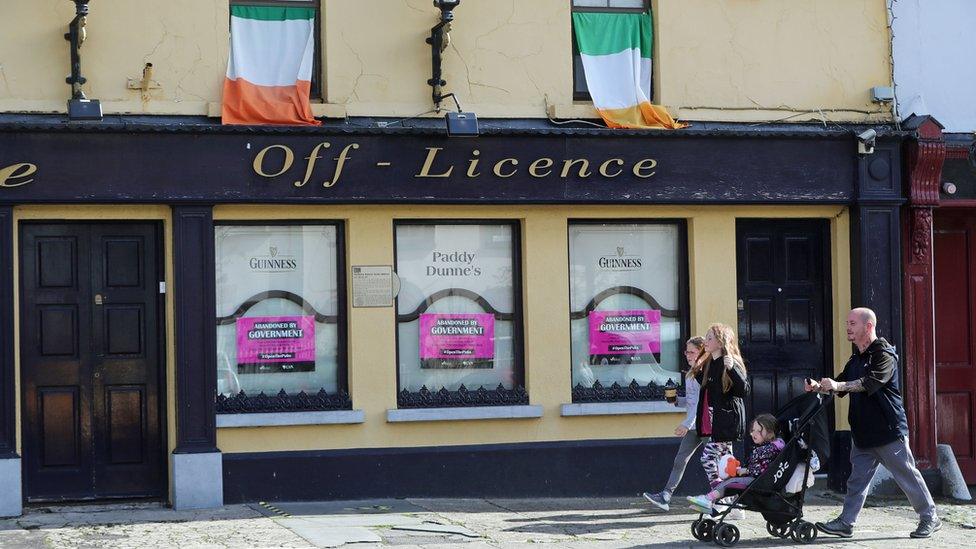
Restaurants and pubs could reopen for indoor dining on 5 July
"The vaccine programme, even though we are suffering supply difficulties, is pretty much where we thought it would be - that all gives us the confidence to ease restrictions."
The tánaiste also confirmed Ireland will not meet its vaccination programme targets for June.
"The target was that by the end of June, 82% of people would be offered a vaccine.
"We do know that it's likely AstraZeneca and Johnson & Johnson aren't going to be able to deliver the supplies they're contracted to. We still expect to be in the mid-70s in terms of the percentage of people who had received either one or both end of June and we can make it up by end of July when 2.5m people will be fully vaccinated.
"So yes, we are behind because of factors outside our control, but not so much that it will change any of our decisions today."
- Published24 May 2021
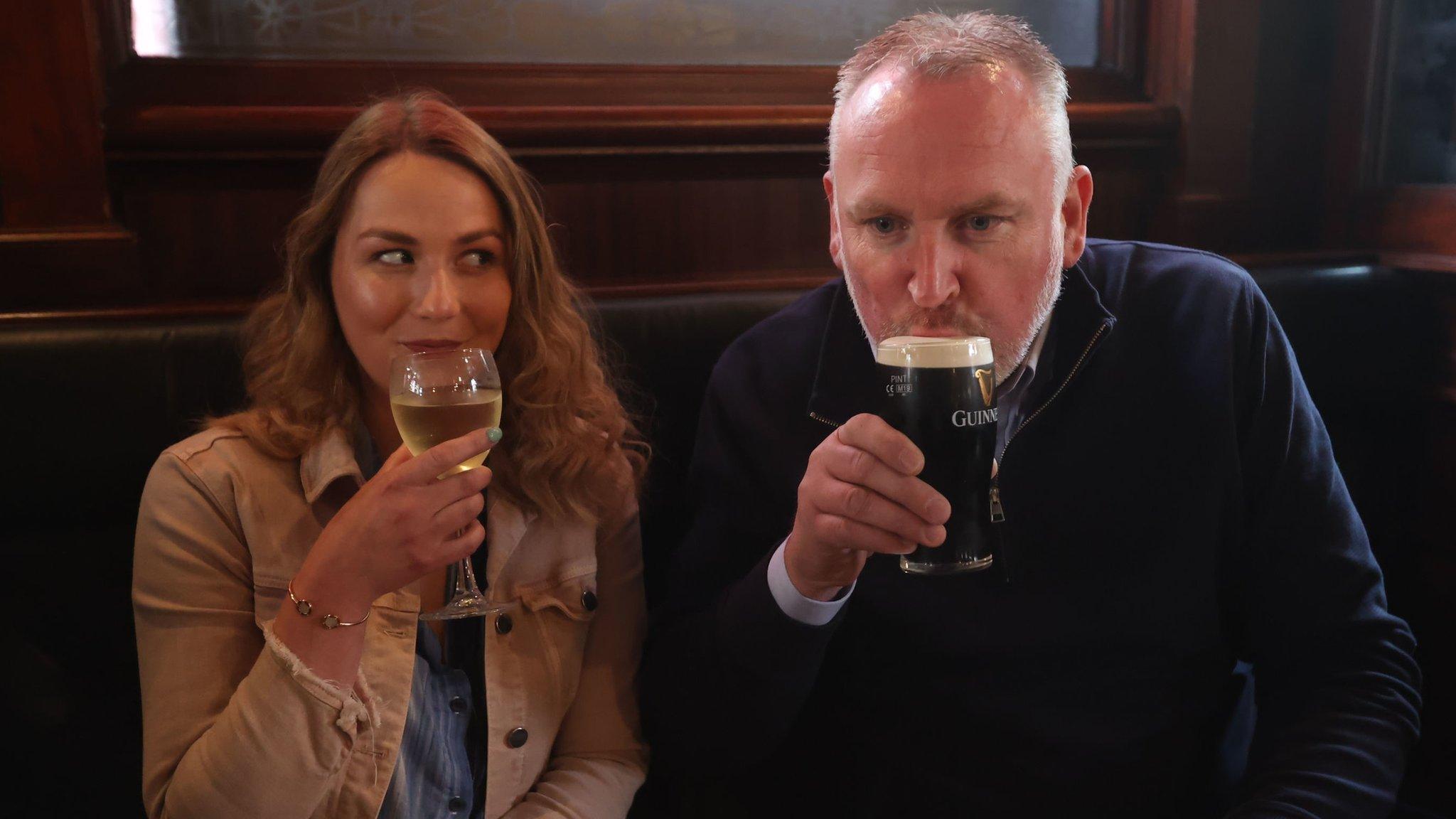
- Published7 January 2022
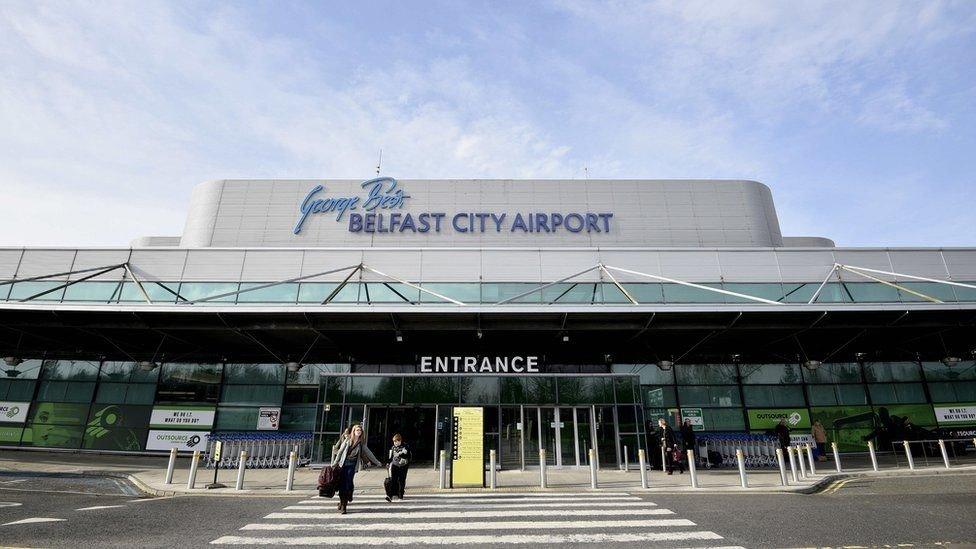
- Published24 May 2021
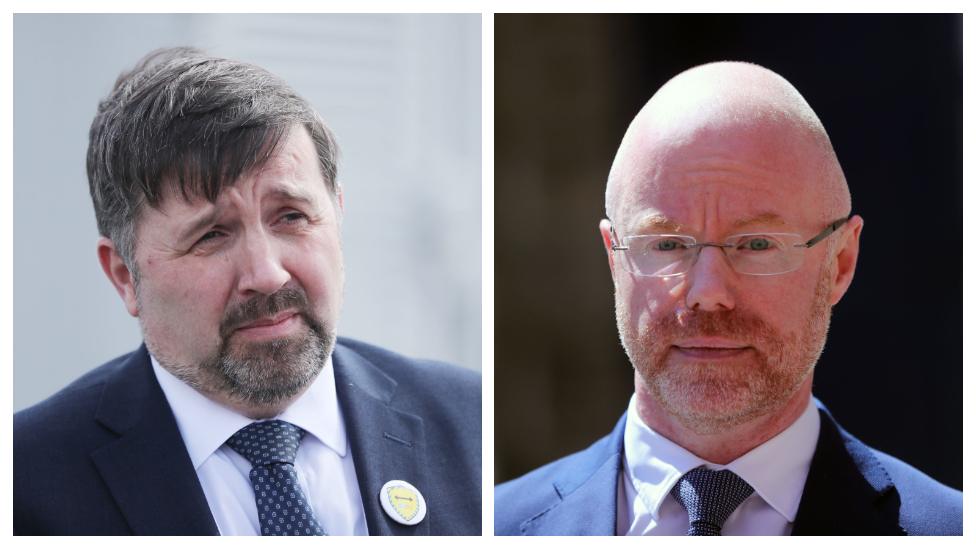
- Published19 February 2021
